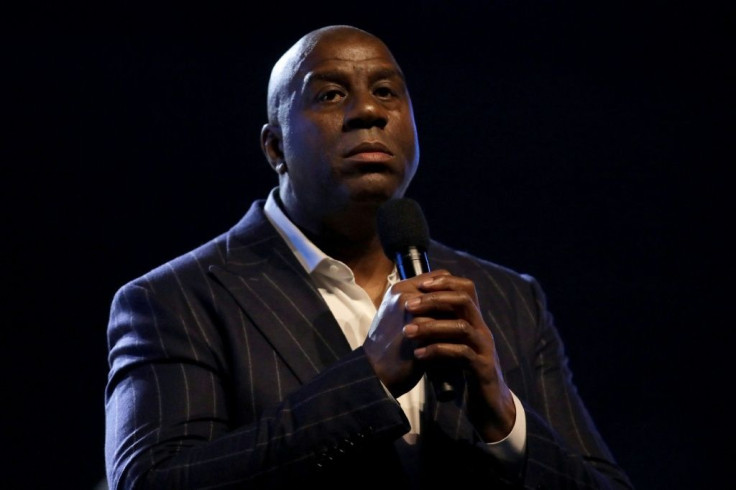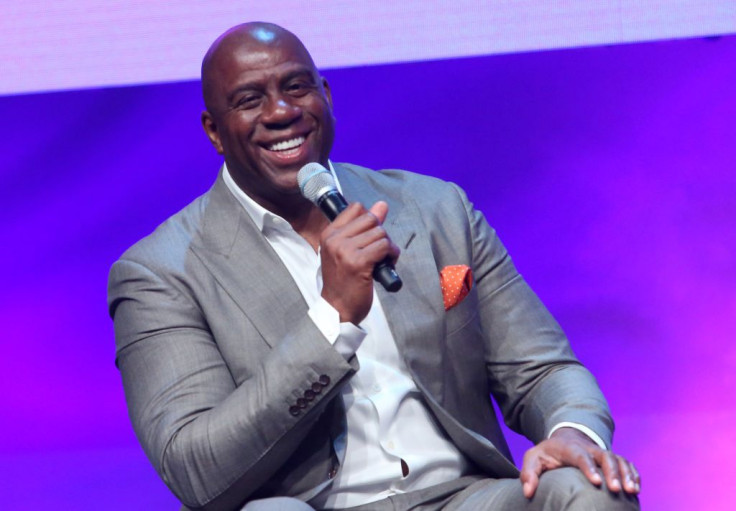Magic Johnson Denies Rumors He Recently Donated Blood Amid HIV Diagnosis

KEY POINTS
- Earvin "Magic" Johnson denied the rumors that he donated blood to COVID-19 patients on Twitter
- A social media user spread a false allegation against the former basketball star using a photo from ten years ago
- Johnson retired from the professional basketball league in 1991 due to his HIV diagnosis
Former basketball star Earvin "Magic" Johnson debunked the allegations that he had donated blood to COVID-19-infected patients amid his HIV diagnosis.
"I'm aware of the false story circling the internet, and to be clear, I have never donated blood," the 63-year-old former Los Angeles Lakers point guard said in a tweet posted Tuesday night.
I’m aware of the false story circling the internet, and to be clear, I have never donated blood.
— Earvin Magic Johnson (@MagicJohnson) August 23, 2022
In a now-deleted post that made waves on the internet, a social media user had shared a picture of Johnson, captured over ten years ago, where he had a tourniquet wrapped around his arm while a doctor appeared to be collecting a sample of his blood, according to the Associated Press.
The social media user falsely accused the NBA star of donating blood in August to help cure COVID-19 patients, writing, "Earlier today, NBA legend Magic Johnson donated some of his blood to the Red Cross to help underprivileged communities help fight COVID-19." The tweet had garnered 10,000 likes and over 25,000 shares.
However, the Associated Press also provided evidence that the allegation was false after conducting an investigation.
According to the news outlet, the image was from a documentary produced by PBS Frontline in 2012, titled "Endgame: AIDS in Black America," where his longtime physician, Dr. David Ho, drew his blood in one scene. In the same year, NPR included the image in a report with the caption: "Dr. David Ho, an HIV/AIDS specialist, draws blood from Magic Johnson, one of the people featured in Endgame: AIDS in Black America."
Red Cross has made it clear in their blood eligibility criteria that they do not accept donations from people diagnosed with AIDS, who have tested positive for HIV or are at risk of becoming infected with HIV.
The risks include having used needles to take any drugs, steroids, or anything not prescribed by a physician, a male having sexual contact with another male, having taken money, drugs, or other payments for sex, or having sexual contact. All risks reported within the last three months would automatically prevent one from donating blood to the organization.
In 1991, Johnson went public about his HIV diagnosis and announced his retirement from the professional basketball league. He returned for two instances, including the 1992 All-Star Game and the Season 1995-1996 of the Lakers, TMZ reported.
Johnson officially resigned in 1996 and has since become an advocate for HIV awareness and prevention. The former baseball star has been taking medication for the infection to remain undetectable and not progress to AIDS, which is the last and most crucial stage of an HIV infection.

© Copyright IBTimes 2024. All rights reserved.






















